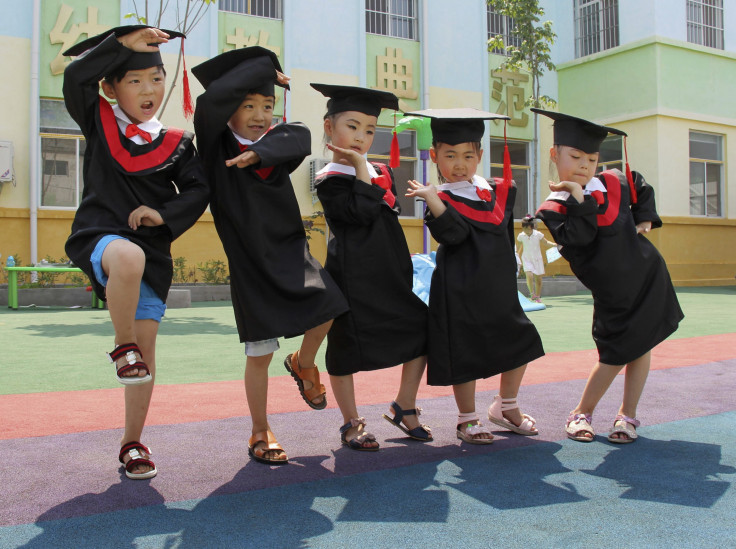Delay In Kindergarten Entry Linked To Poor Academic Performance Among Children, Study Finds

Children who start their schooling late are more likely to perform poorly in academics throughout their education life, a new study finds.
Premature children are no longer a rarity. Owing to this, many parents try to hold their premature child for a year or two, arguing that their child in not mature enough to begin school. Previous studies have also highlighted that children born three months prematurely can actually benefit by going to school a year late.
However, a new study suggests otherwise. The study was conducted by researchers from the University of Warwick. Researchers found that starting school a year later does not lead to better academic performance for pre-term or full-term children and could, in fact, cause poorer academic performance as the children get older.
"Our study shows that delaying school entry has no effect on Year 1 teacher ratings of academic performance, but it is associated with poorer performance in age-standardized tests of reading, writing, mathematics and attention as the children get older,” author Professor Dieter Wolke from the Department of Psychology and Warwick Medical School at the University of Warwick said in a press statement.
The researchers clarified that since they weren't able to delay the children's entry to school, they were forced to find a more suitable sample of participants for the study. Owing to this, the chose to use data from the Bavarian Longitudinal Study. The policy of this study was that all children to be assessed by a community pediatrician three to 12 months before their school entry date to assess their readiness for school. The study included 999 children, of whom 472 were pre-term babies. The researchers compared teacher ratings of achievement in Year 1 and then looked at the results of standardised mathematics, reading, writing and attention tests when the children reached 8 years of age.
"Many parents demand that preterm children should be held back, particularly if they were born in the summer. This is also supported by many charities supporting parents with preterm children,” the study authors said. "However, we found missing one year of learning opportunities was associated with poorer average performance in standardized tests at 8 years of age for both pre-term and full-term children. Future research is needed to determine the long-term effect of delayed school entry on academic achievement, but our results certainly give parents and educational providers food for thought."
A very contrary study was conducted in 2014. A team of UK researchers noted that children should not start school until they are six or seven years old because of the damaging effects pressure to perform may have on their young brains.
Findings of the study were published online in the journal Developmental Medicine & Child Neurology.
To contact writer, email: sammygoodwin27@gmail.com




















